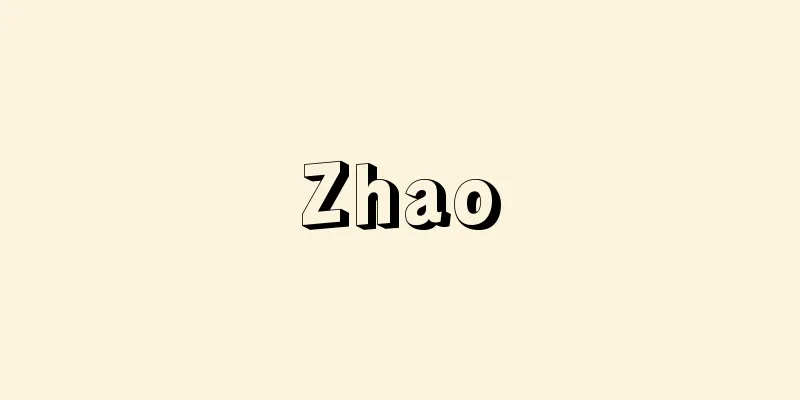Iha Fuyu

|
Linguist and folklorist. Known as a patriotic researcher who lived alongside Okinawa during the tumultuous period of modern Okinawa, from the annexation of the Ryukyu Islands in the early Meiji period to the period when Okinawa came under American military rule after Japan's defeat in the Pacific War. Born in Naha on February 20, 1876 (lunar calendar). As the eldest son of a wealthy family, he enjoyed a privileged childhood, but in the autumn of his fifth year of middle school, he participated in a movement to expel the principal of Okinawa Ordinary Middle School, leading to his expulsion. The following year, in 1896, he moved to Tokyo. During this time, he was strongly influenced by his middle school teacher, Tajima Risaburo, and decided to study the novel "Omoro Saushi." In 1906 (Meiji 39), he graduated from the Department of Literature, Department of Linguistics, Tokyo Imperial University. He returned home with the aim of studying his hometown, but responded to the social demands of Okinawa at the time and began to engage in educational activities. He was involved in the establishment of the Okinawa Prefectural Library, and continued his activities as the director, while also giving lectures on the history of the Ryukyu Islands, religious lectures on Christianity, and phonetics lectures for dialect correction, opening reading groups, starting children's groups, establishing a congregational church, being involved in a drama association, holding women's lectures, Esperanto seminars, and racial hygiene lectures, and carrying out various enlightenment activities. However, in 1921 (Taisho 10), he met Kunio Yanagita, and decided to return to academia, devoting himself to the study of "Omoro Soushi". He moved to Tokyo in 1925, and continued his research life there until the end of the war. He passed away on August 13, 1947, worrying about the land of Okinawa that had become a battlefield. His life, which was tossed about by the times, was not necessarily peaceful, but now a cemetery has been built on the hills of Urasoe, a place of beautiful scenery, and a monument has been erected in his memory. His research activities cover a wide range of subjects, including language, folklore, history, and literature, and he has published numerous books. His notable tendency to integrate academic fields to shed light on the characteristics of the local community of Okinawa is known as Okinawa studies. In addition to his individual academic achievements, Iha Fuyu's Okinawa studies have had a major ideological influence, casting a shadow over various activities in modern Okinawa. His books include "Ancient Ryukyu," "Selected Commentaries on the Omoro Soushi," "Edited Omoro Soushi," "The Island of the Onari God," "Thoughts on Okinawa," and "Okinawa Historical Tales." [Shizen Sotoma October 19, 2018] "The Complete Works of Iha Fuyu, edited by Hattori Shiro et al., 11 volumes (1974-1976, Heibonsha)" ▽ "Iha Fuyu - The Image of Okinawan History and His Thought, by Kinjo Masahiro and Takara Kurayoshi (1972, Shimizu Shoin)" ▽ "Iha Fuyu: The Person and Thought, edited by Tokama Moriyoshi (1976, Heibonsha)" ▽ "A Discussion of Iha Fuyu, by Tokama Moriyoshi (1979, Okinawa Times / New expanded edition, 1993, Heibonsha)" [References] | | |Source: Shogakukan Encyclopedia Nipponica About Encyclopedia Nipponica Information | Legend |
|
言語学者、民俗学者。明治初年の琉球(りゅうきゅう)処分に始まり、太平洋戦争の敗戦によってアメリカ軍の統治下になるまでの近代沖縄の激動期を、沖縄とともに生きた愛郷の研究者として知られる。明治9年2月20日(旧暦)那覇に生まれる。素封家の長男として恵まれた幼年期を過ごすが、中学5年生の秋、沖縄尋常中学で起こった校長排斥運動に加担して退学。翌1896年上京。この間、中学時代の恩師田島利三郎(たじまりさぶろう)の影響を強く受けて、『おもろさうし』研究を志す。1906年(明治39)東京帝国大学文学科言語学専修卒業。郷土研究を志して帰郷するが、当時の沖縄の社会的要請にこたえ啓蒙(けいもう)活動に入る。県立沖縄図書館の設立にかかわり、館長嘱託としての活動を続けるかたわら、琉球史の講演を手始めに、キリスト教に関する宗教講演、方言矯正のための音声学講演を続け、読書会を開き、子供の会を始め、組合教会の設立、演劇協会にかかわり、婦人講話会、エスペラント講習会、民族衛生講話を行うなど、多様な啓蒙運動を展開した。しかし1921年(大正10)柳田国男(やなぎたくにお)と出会い、学究に立ち戻ることを決意、『おもろさうし』の研究に打ち込む。1925年上京、以後は東京で研究生活を続け、終戦を迎える。昭和22年8月13日、戦場となった沖縄の地を案じつつ、生涯を閉じた。時代にもまれた一生は、かならずしも平穏でなかったが、いまは、風光の美しい浦添(うらそえ)の丘に霊園がつくられ、顕彰碑が建てられている。 研究活動は、言語、民俗、歴史、文学など広範にわたり、数多くの著作を発表。諸領域の学問を総合して、沖縄という地域社会の特性を明らかにしようとした顕著な傾向は沖縄学として知られる。個々の学問の業績だけでなく、伊波普猷の沖縄学の思想的影響は大きく、現代沖縄のさまざまな活動にも影を投げている。著書に『古琉球』『おもろさうし選釈』『校訂おもろさうし』『をなり神の島』『沖縄考』『沖縄歴史物語』などがある。 [外間守善 2018年10月19日] 『服部四郎他編『伊波普猷全集』全11巻(1974~1976・平凡社)』▽『金城正篤・高良倉吉著『伊波普猷――沖縄史像とその思想』(1972・清水書院)』▽『外間守善編『伊波普猷 人と思想』(1976・平凡社)』▽『外間守善著『伊波普猷論』(1979・沖縄タイムス/増補新版・1993・平凡社)』 [参照項目] | | |出典 小学館 日本大百科全書(ニッポニカ)日本大百科全書(ニッポニカ)について 情報 | 凡例 |
Recommend
Algal Mat - Algal Mat
...A sedimentary structure consisting of laminae ...
Katakoginu
…In Akita Prefecture, it is called “kogin” or “ko...
Weber's line
In zoogeography, this is the distribution boundar...
Charter of Love
…Robert himself returned to the Benedictine Order...
Yu King - Touou
Years of birth and death unknown. King of the fou...
Ordinal scale
…An interval scale is a scale in which the differ...
Inuyama Line - Inuyama
...Abbreviated as Meitetsu. In addition to the Na...
Trochophora
… In general, the egg undergoes spiral cleavage, ...
The Beginnings of Dutch Studies
Sugita Genpaku's memoirs. Two volumes. In Apr...
Constitution - kenpo (English spelling) constitution English
Overview Generally, it refers to a modern constit...
Seminary - Shingakko (English spelling) seminary
A school that teaches Christian theology and trai...
Mersenne number - Mersenne number
of 2 Power Should A natural number expressed as a ...
Yakitori - Yakitori
〘Noun〙 Chicken meat or tripe is skewered, baked un...
House quality - Kajichi
Mortgages of houses in the Edo period. The word &...
Purification - Harae
An event to remove sins and misfortunes. It is al...









